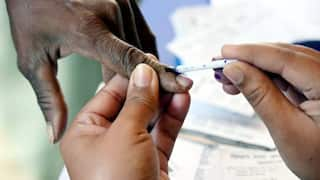Breast Cancer Awareness Month 2023: Did You Know Breast Cancer Can Occur In Men As Well? See What Experts Say
Incidence of male breast cancer is higher in older men. Late presentation with advanced disease is a common feature of male breast cancer.

In the realm of cancer awareness and prevention, breast cancer is predominantly associated with women. However, it's vital to recognise that breast cancer can also affect men. While less common in the male population, the impact can be equally devastating. According to Dr Tanmoy Mandal who is a Consultant Medical and Hemato Oncologist, at AMRI Hospitals, Kolkata, "Incidence of male breast cancer is higher in older men. Late presentation with advanced disease is a common feature of male breast cancer."
In this article, we will delve into the lesser-discussed subject of breast cancer in men, its risk factors, symptoms, and the importance of early detection and treatment.
Understanding Male Breast Cancer:
Dr Rohit Kumar C, who is a Surgical oncologist at Aster International Institute of oncology, Aster RV Hospital said, "Male breast cancer occurs when malignant cells form in the breast tissue of men. While the risk is significantly lower in men than in women, it is crucial to recognize that it can happen to anyone, regardless of gender. Breast cancer in male is a rare malignancy with an estimated incidence rate of 0.5–1 % of all breast cancer cases. It is usually a disease of elderly men and seen in 6th or 7th decade. The risk increases progressively with increasing age. Most of the patients present in advanced stage and the prognosis is poor as compared to the disease in females."
Risk Factors Of Breast Cancer In Men:
Dr. Pradeep Mahajan who is a Regenerative Medicine Researcher and Founder of StemRx BioScience Solutions India said the following:
- Age: The risk of breast cancer increases with age, and it is most common in men over 60.
- Family History: A family history of breast cancer, especially in close relatives like a mother, sister, or daughter, can elevate the risk.
- Genetic Mutations: Mutations in BRCA1 and BRCA2 genes can increase the risk of breast cancer in men.
- Klinefelter Syndrome: This genetic disorder, where males have an extra X chromosome, is associated with a higher risk of breast cancer.
- Estrogen Exposure: Conditions such as obesity, liver disease, and hormone treatments can increase estrogen levels in men, potentially raising the risk.
Signs And Symptoms Of Breast Cancer In Men:
Male breast cancer shares some similarities with its female counterpart. Common signs and symptoms include:
- A lump or mass: Usually painless, it is often found beneath the nipple or areola.
- Nipple discharge: This might be clear, bloody, or pus-like.
- Changes in the nipple or breast: This includes redness, scaling, or dimpling of the skin.
- Inversion of the nipple: When the nipple turns inward.
- Enlarged lymph nodes: Swollen lymph nodes in the armpit.
Early detection is crucial for effective treatment. Men should be proactive in their health and seek medical attention if they notice any unusual changes in their breast tissue. A thorough clinical examination, mammography, ultrasound, and biopsy are common diagnostic tools.
Early Detection and Diagnosis:
Dr Rohit Kumar C said, "Early detection is crucial for successful treatment. Men should be proactive about their breast health. If you notice any of the mentioned symptoms or have concerns, consult a healthcare professional immediately."
They may recommend:
- Physical examination: To assess the lump or changes.
- Ultrasound: To get a better view of the lump and the chest and breast area .
- Biopsy: To confirm if the lump is cancerous.
Treatment Options:
Treatment for male breast cancer typically involves surgery to remove the tumor, followed by radiation therapy, chemotherapy, hormone therapy, or targeted therapy, depending on the stage and characteristics of the cancer. The specific treatment plan is determined by a multidisciplinary team of healthcare professionals.
Dr. Pradeep Mahajan said, "Regenerative medicine offers promising avenues for the treatment of breast cancer in men by leveraging innovative approaches such as tissue engineering and stem cell therapy. These techniques can be used to regenerate healthy breast tissue following surgical removal of cancerous masses, reducing the physical and psychological impact of mastectomies. Additionally, regenerative strategies may help in developing personalized treatments, targeting the specific genetic and molecular factors contributing to breast cancer in men, ultimately improving the effectiveness of therapies and enhancing the quality of life for patients in their battle against this disease."
Lifestyle Changes:
Dr Tanmoy Mandal said, "Choose to maintain a healthy lifestyle to reduce the chance of getting cancer. Avoid alcohol or drink in moderation, eat a healthy diet, Exercise regularly, get regular checkups and talk to your doctor about cancer screening, know your family history of cancer and talk with your doctor about it. The best way we can manage cancer is by understanding the early signs and beginning timely management."
Breast cancer in men, though rare, is a reality that cannot be ignored. It is crucial for men to be aware of the risk factors, symptoms, and the significance of early detection. By promoting awareness, erasing taboos, and encouraging regular check-ups, we can ensure that male breast cancer is detected and treated at an early stage, improving the chances of survival and quality of life for those affected. Remember, cancer does not discriminate based on gender. Everyone, regardless of their sex, deserves access to information, support, and early detection methods that can make a life-saving difference.
[Disclaimer: The information provided in the article, including treatment suggestions shared by doctors, is intended for general informational purposes only. It is not a substitute for professional medical advice, diagnosis, or treatment. Always seek the advice of your physician or other qualified healthcare provider with any questions you may have regarding a medical condition.]
Check out below Health Tools-
Calculate Your Body Mass Index ( BMI )
Calculate The Age Through Age Calculator





































